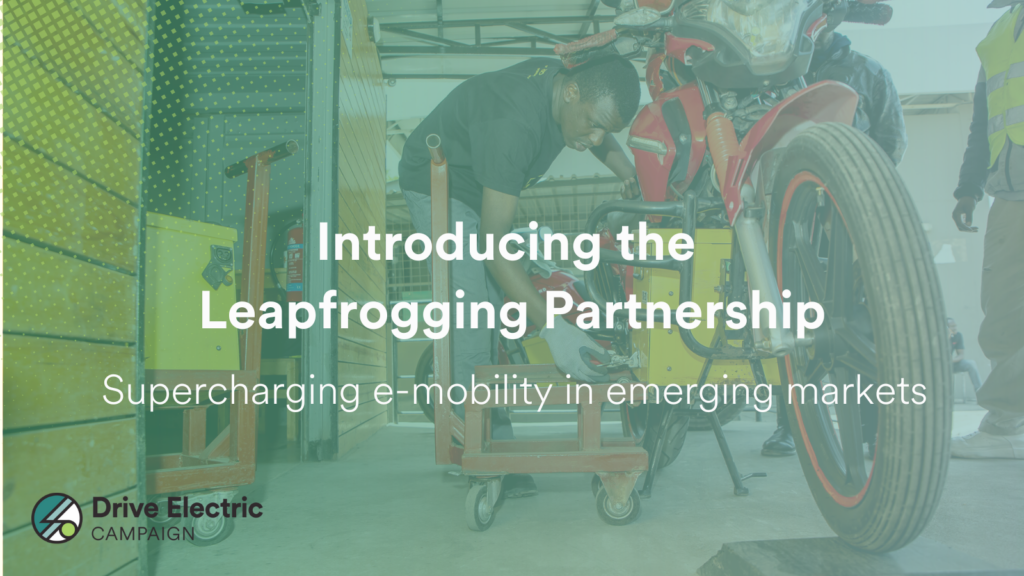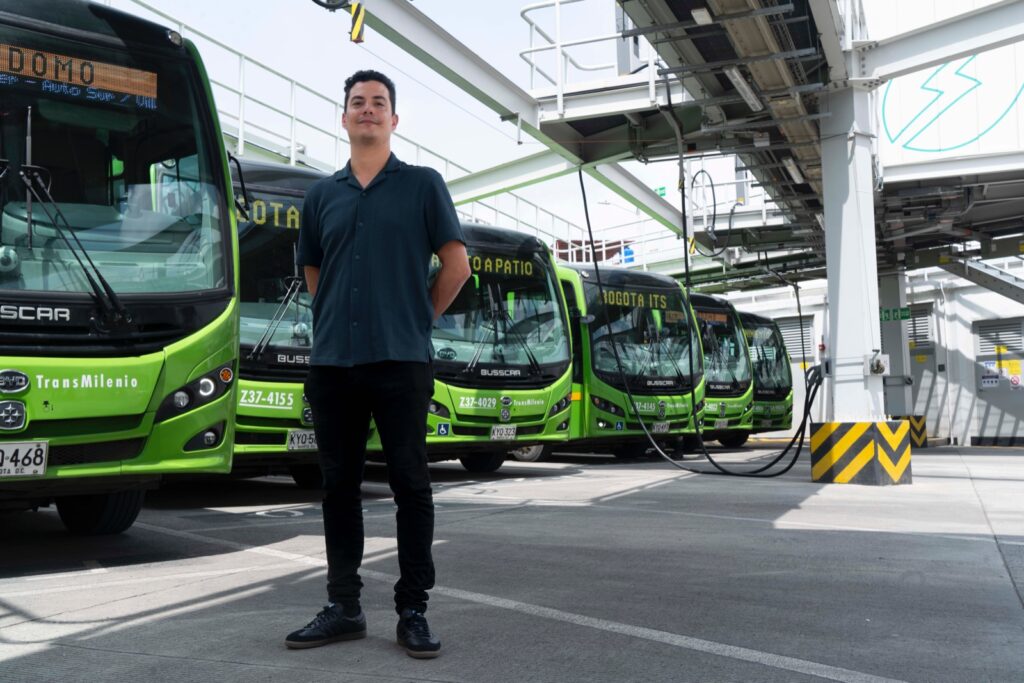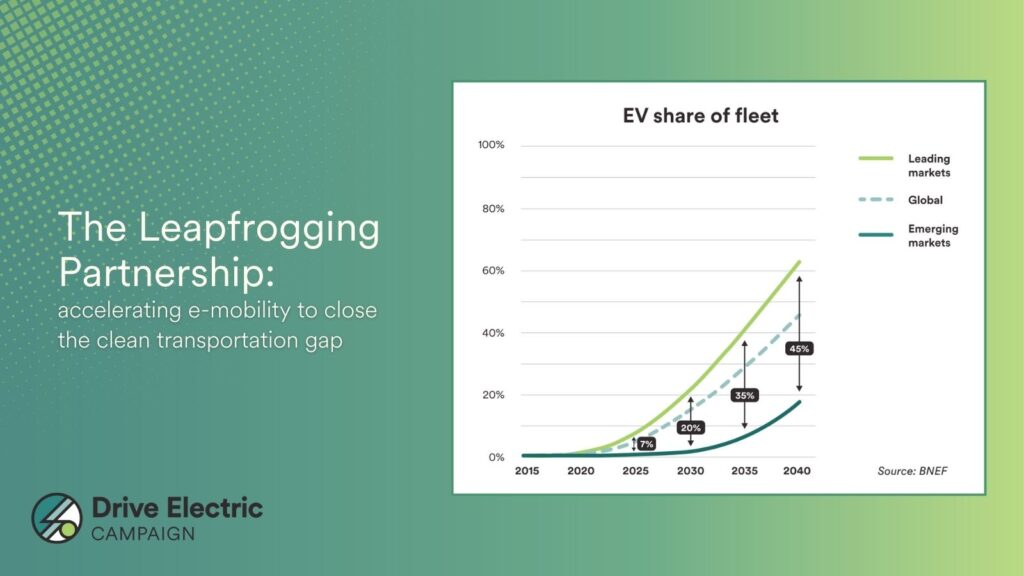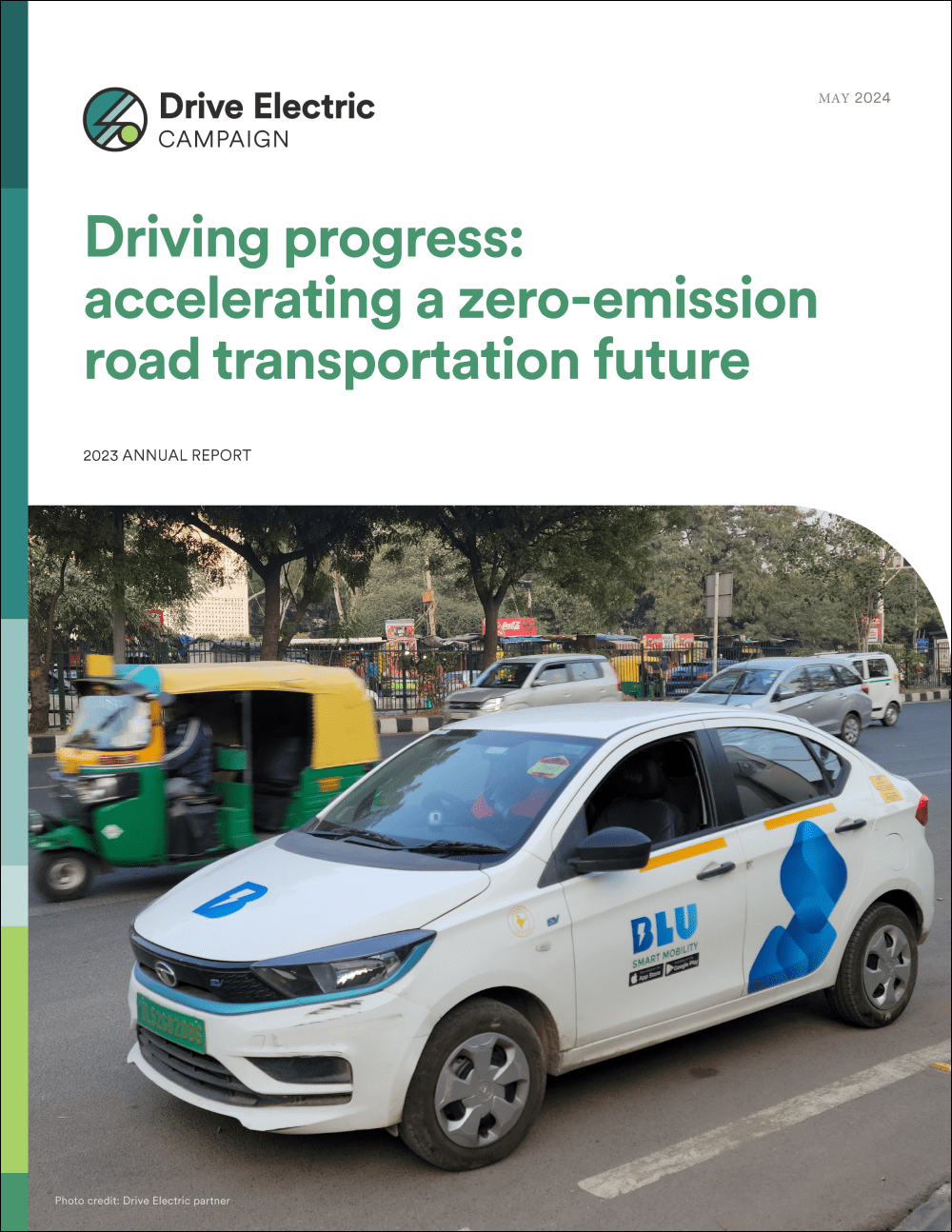Supercharging the global EV transition: Introducing the Leapfrogging Partnership
In the streets of some of the world’s fastest-growing cities, a powerful shift is underway. As the sun rises, the familiar sounds of car horns and bustling crowds are joined by something new — a quiet hum, thanks to a growing fleet of zero-emission motorcycles, cars, trucks, and buses.
To accelerate the transition to 100% zero-emission vehicles worldwide, Drive Electric is excited to announce the Leapfrogging Partnership, a new initiative supercharging zero-emission road transportation in emerging markets, supported by a catalytic investment of $100 million over 4 years from the IKEA Foundation.
Drive Electric’s global approach has already accelerated progress toward 100% clean transportation with work in over 65 countries. Now, nearly 40% of the world’s transportation demand is covered by government and business commitments to shift 100% zero-emission vehicles by or before 2050. But clean transportation, and its benefits, are not yet equally distributed. The goal of the Leapfrogging Partnership is to accelerate access to clean, affordable zero-emission vehicles the world over.
“Most of the growth in vehicle demand is expected to occur in emerging economies by 2050, and the next several years present an opportunity for emerging markets to ‘leapfrog’ over dirty combustion vehicles to sustainable, zero-emission transportation,” shared Drive Electric Program Director Rebecca Fisher in a statement. “This new initiative is inspired by a future where the first 2-wheeler or 4-wheeler a family owns is zero-emission, fueled by domestically produced renewable energy.”
The Leapfrogging Partnership is launching with support from the IKEA Foundation, a strategic philanthropy with over 140 partners focused on tackling poverty and climate change. Edgar van de Brug, Head of the Real Economy Portfolio, said: “Decarbonizing road transportation is essential to decarbonizing society. The Leapfrogging Partnership will accelerate the electric vehicle transition and drive a rapid reduction in emissions from road transport in the coming decades, with a specific focus on emerging economies in Southeast Asia, Africa and Latin America.”

Supporting clean transportation leadership in emerging markets
Incredible innovation and ambition already exist as governments, businesses, and communities in emerging markets see the benefits of electric vehicles. Supercharging the zero-emission vehicle transition boosts local economies, provides cleaner air, delivers on climate goals, and powers a just transition.
“Emerging economies face a number of challenges in decarbonizing their transport fleets. Even so, we have already seen leadership coming from these constituencies,” notes Sebastián Galarza, Executive Director of Centro de Movilidad Sostenible, a Drive Electric partner based in Chile. “Santiago de Chile, for example, has the largest fleet of battery electric buses outside of China. The country has set ambitious targets to bridge the gap with leading markets, adopting the region’s first sales-weighted fuel economy standards. Much support is still needed to meet these goals and set the pathway to realizing the climate and economic benefits expected from these policies, particularly in regions rich in minerals needed to drive a clean energy transition.”

The Leapfrogging Partnership will deepen Drive Electric’s work with partners across Africa, Latin America, and Southeast Asia by supporting the next generation of country leaders in zero-emission transportation, encouraging scalable solutions at regional and country levels, and expanding existing global platforms to include public, private, and civil society sector leaders from emerging economies.
The Campaign has cultivated partnerships with leaders in emerging markets working across e-mobility modes with our LEAP Fund (Leapfrogging to E-mobility Acceleration Partnership), designed to advance transportation electrification. Over the past three years, the LEAP Fund has tripled in size, distributing $3.4 million to 23 global partners. The Leapfrogging Partnership will integrate this work into an expanded strategy that resources more partners to engage with Drive Electric’s transformative approach.
“More work is needed to support an equitable global shift, and we see potential for the next wave of clean transportation frontrunners in Brazil, Chile, Indonesia, Kenya, Mexico, and South Africa,” shared Fisher. “These countries have a robust mix of commitments to a clean energy transition, political will for climate-smart development policies, and favorable underlying economic and industrial development conditions.”
Addressing the global EV gap to reduce emissions

Road transportation accounts for more than half of global oil demand, and is a fast-growing source of carbon emissions in many countries across Africa, Latin America, and Southeast Asia. Decarbonizing transportation is essential to decarbonizing society — but without further action, we risk a growing gap where incumbent industries continue to profit off polluting vehicles in emerging markets. According to analysis by BloombergNEF, the gap between leading and emerging markets could be as much as 45% by 2040 measured in terms of the share of vehicle fleets comprised of EVs. Perpetuating the polluting tailpipe drives real-world impacts including worsening air quality in the world’s fastest-growing cities, and puts a safe climate at risk.
By tackling one of the largest sources of global emissions, we can drive powerful change. An accelerated transition to EVs can save governments and people money, enable new business opportunities, and create new jobs across the EV and clean energy supply chains. According to Carbon Tracker, a Drive Electric partner, switching to battery-powered vehicles will save over $100 billion annually across Africa, Latin America, and Southeast Asia by cutting fuel import taxes and costs.
Accelerating zero-emission transportation for all
The Leapfrogging Partnership is inspired by the opportunity to transition the entire global road transport sector by ensuring emerging economies have access to clean, zero-emission vehicles of all types — including buses, trucks, cars, and 2- and 3- wheelers — and can leapfrog over dirty combustion vehicles as their fleets expand in the coming years. We envision a future where growing cities that are building out transit systems are able to purchase fully electric bus fleets. Where businesses and entrepreneurs that want to lead this transition have adequate access to finance and peer networks. Where EVs can make it easier and more cost-effective to rapidly expand renewable power by providing flexibility to the grid. Where emerging economies can continue to grow sustainably and cleanly. And where the health and environmental benefits of electric road transportation can be felt and accessed by all.
This work is an opportunity to make this vision a reality, and we look forward to your partnership in building a more just world and a safer climate.
